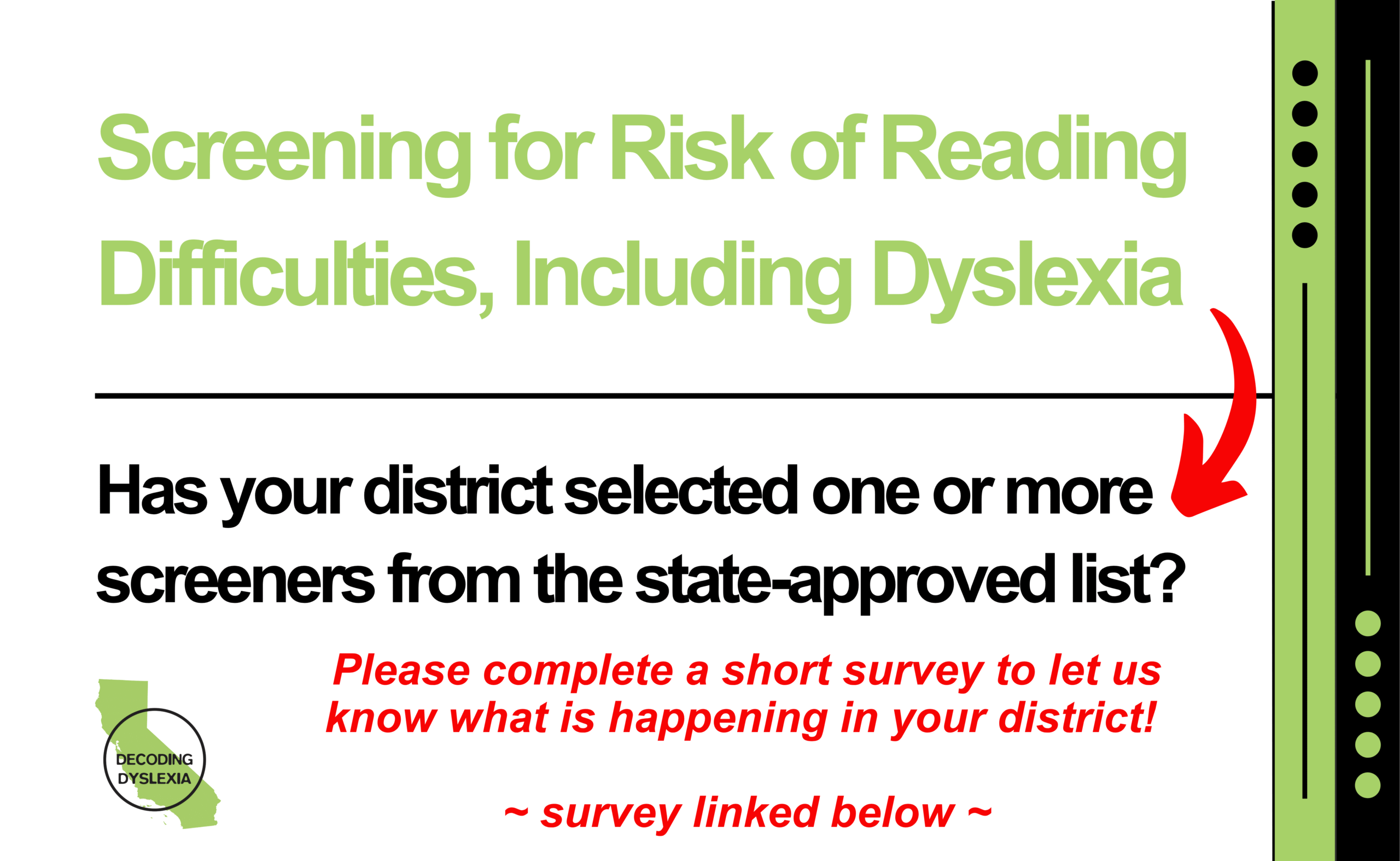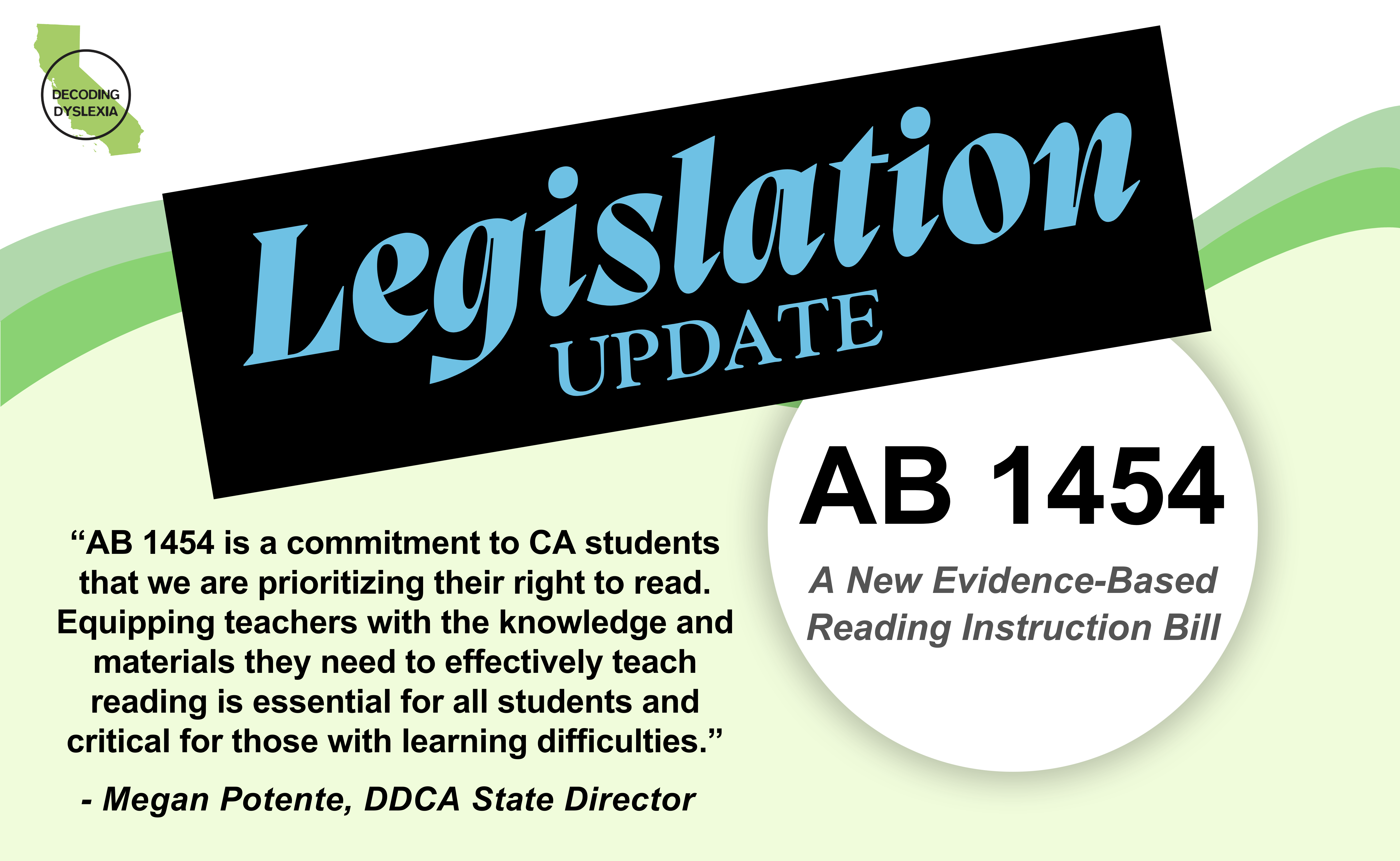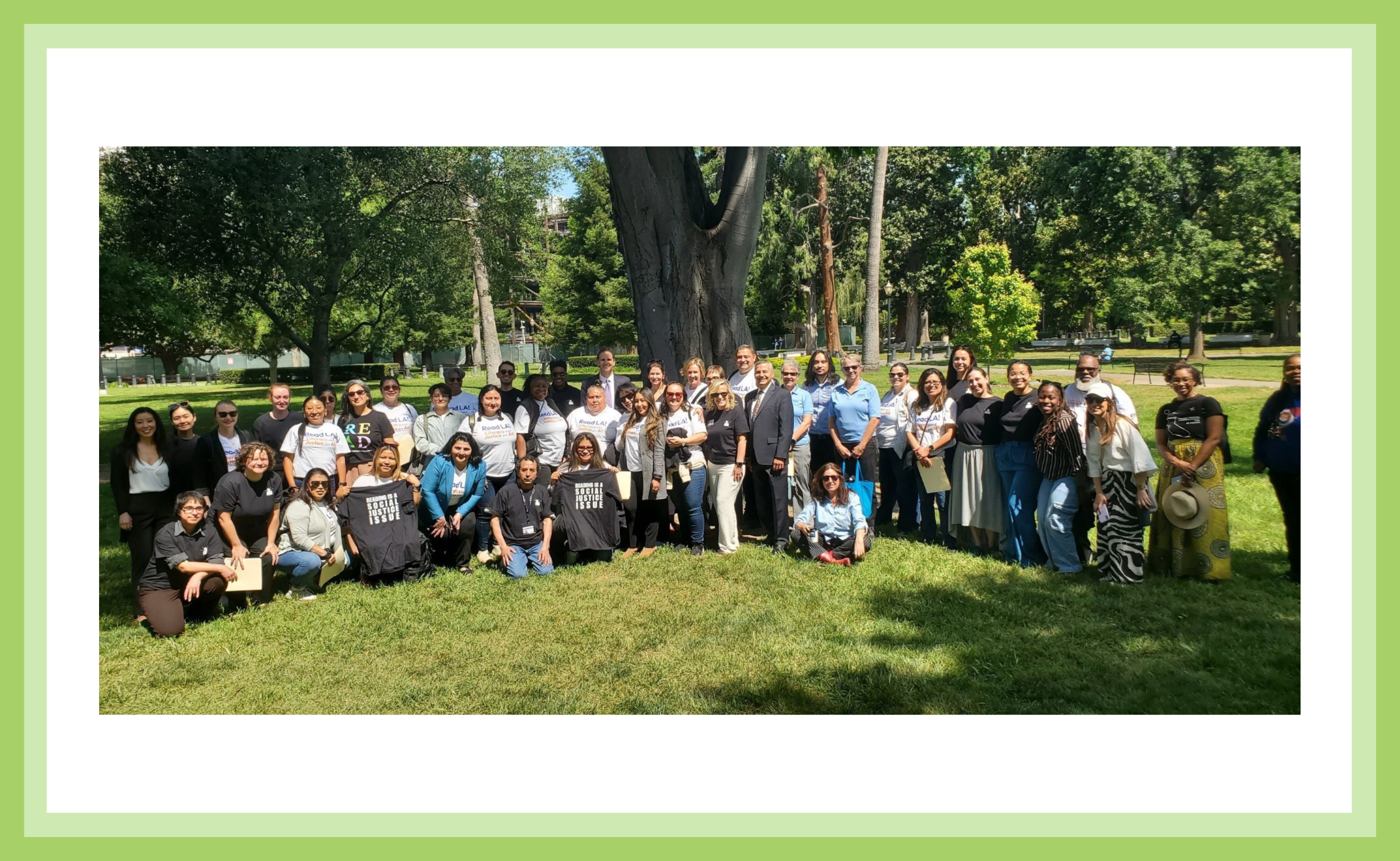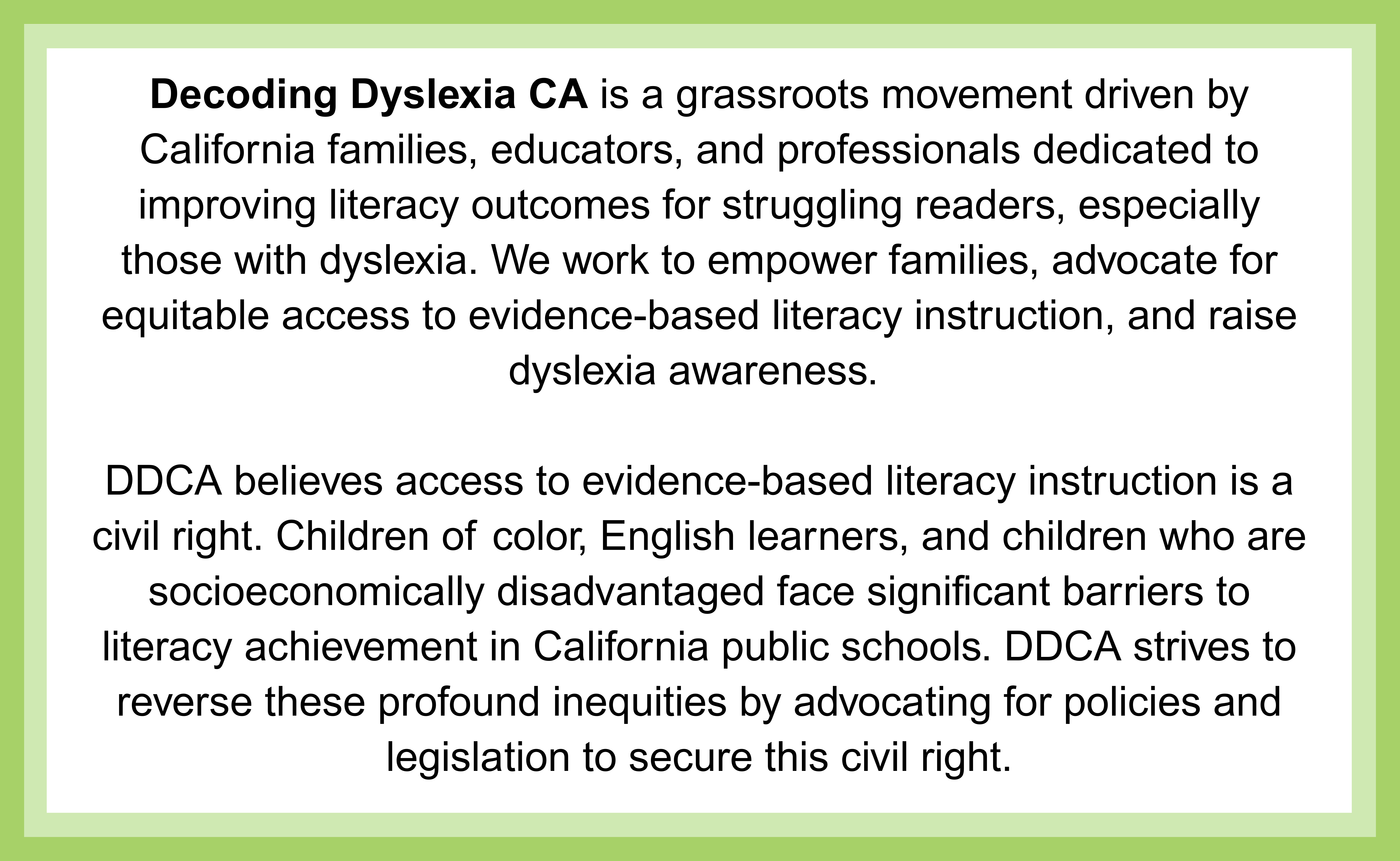The countdown is on.
By June 30, 2025, every school district in California must select a state-approved screener to identify students at risk for reading difficulties, including dyslexia. This is not optional – it’s mandated by Senate Bill 114, which was signed into law in 2023. Screening is a critical step toward ensuring early intervention for California’s youngest learners who may have difficulty learning to read.
Beginning in the 2025–26 school year, all districts will be required to screen kindergarten through second-grade students for risk of reading difficulties. That means right now is the time for districts to finalize their implementation plans.
Decoding Dyslexia CA will be collecting data from across the state. Please complete this short survey to let us know what is happening in your district:
Reading Difficulties Screener Selection Survey
Further Information and Resources
The California Department of Education released its approved list of screening instruments on December 16, 2024. School districts must choose one or more of these screeners in a public meeting by the June 30 deadline.
In addition, districts must determine:
- How and when the screener will be administered,
- How English learners will be appropriately assessed,
- And how they will interpret results and provide timely, effective support to students identified as at risk.
To help streamline the screening details, DDCA partnered with The Reading League – CA to create this planning resource:
👉 Reading Difficulties Risk Screener – Implementation Steps for LEAs (infographic)
If you would like more information on the screeners and the mandates of the law, a compilation of recorded webinars can be found here:
👉 Reading Difficulty Risk Screener [RDRS] – Upcoming Workshops.pptx
Additionally, we’re thrilled Governor Newsom allocated $40 million for teacher training on universal screening in the May Revision of the 2025-26 state budget. This money will be used solely for supporting teachers as they implement this screening law. DDCA has and will continue to advocate for this and additional literacy-focused funding as the budget trailer bill progresses through the Legislature this summer.
Don’t miss this recent coverage on universal screening, featuring personal testimony from DDCA’s State Director Megan Potente: California schools prepare to introduce universal reading screening | EdSource.
Finally, please encourage your community – families, educators, and advocates – to sign up for DDCA emails to stay informed on the movement to transform literacy outcomes in California.
Together, we can ensure the screening law delivers on its promise – and that all California children achieve literacy.




